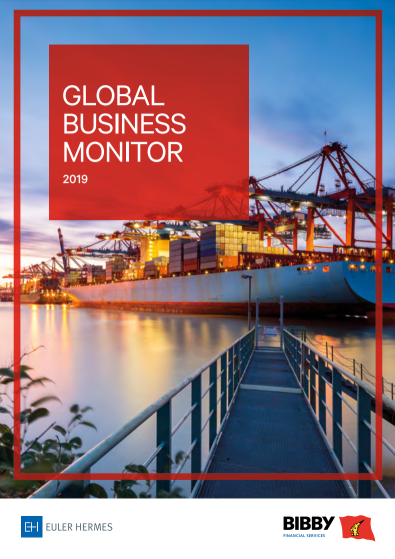
David Postings, Global CEO of Bibby Financial Services, reflects on the findings from their 2019 Global Business Monitor, sharing the sentiment of SMEs from across the globe.
In the years following the economic crisis of 2008 the global economy didn’t exactly return to a time of milk and honey, but there was undoubtedly renewed optimism across international markets. This optimism brought about a recovery of sorts, and small and medium sized enterprises (SMEs) had a significant part to play in this.
According to the World Bank these businesses contribute up to 60% of employment and up to 40% of GDP in emerging economies.[1]
The link between SMEs and global growth cannot be understated. SMEs themselves are sentiment barometers. They react to international trends, respond to technological advances, and form the nucleus that local economies revolve around.
Correspondingly, the output of these businesses directly relates to confidence in the markets in which they operate. It’s this optimism that fortifies supply chains, creates jobs and generates investment to fuel economies and prosperity.
The current state of play
In 2016 we launched our first Global Business Monitor report to better understand the opportunities and threats faced by SMEs across Asia, North America and Europe. At the time, I noted that amid geopolitical change and rising economic uncertainty, business owners were still optimistic about their own prospects, despite lacking confidence in both domestic and global markets.
Three years on we have partnered with credit insurance experts, Euler Hermes, combining our SME funding specialism - built-up over almost 40 years - with unique economic analysis across 13 markets to produce the 2019 Global Business Monitor.
Our findings highlight similar headwinds facing small businesses amid a slowdown in global growth. More than half of SMEs say they have concerns about the global economy, and a quarter say rising costs are stifling growth.
Across geographies, similar issues are cited: deceleration in China amid the ongoing trade war with the U.S., fears of a recession in Germany – the economic powerhouse of Europe – and Brexit, the UK’s ongoing political impasse.
However, if compared with our findings in 2017, when almost two-thirds voiced concern about the global economic outlook, these results show an improvement. It remains to be seen whether business owners are indeed more positive about global prospects, or if they are becoming accustomed to the possibility of a downturn and, in pockets, taking advantage of the changing environment.
At a more local level, challenges facing SMEs follow a familiar refrain. Late payment from customers, cashflow pressures, skills shortages and access to finance are all perennial issues.
The funding landscape
Although bank loans remain the primary source of external funding for many (alongside private equity and overdraft facilities), there has been an undeniable shift in the funding landscape for SMEs in recent years around the globe. There are now more options than ever to access working capital and cashflow solutions and many finance markets are awash with liquidity. From bank lending, to receivables finance and transactional peer-to-peer lenders, SMEs aren’t limited in relation to the options they can explore. Although it is evident that options don’t always equate to access as perceptions of viability differ greatly between lenders.
Almost a quarter of the businesses we spoke with across the world said they felt access to finance was inadequate or poor. This rose to a third in Ireland, France and Slovakia. One in five said they have been rejected for finance, with poor credit history being cited as the primary reason for declined applications. While there will always be businesses that offer financiers a little too much risk for comfort, I believe this figure can be reduced, and this is where types of funding like invoice finance can really help.
Fundamentally, businesses value relationships and a strong bond between financier and client - especially in times of trouble - can make all the difference.
Optimism over uncertainty
Despite micro and macro-economic challenges, SMEs continue to seek opportunities for growth and many are investing to make this growth happen. Social media, developing new products and services, and finding new market segments are seen as the key areas for capital expenditure.
Almost half say they believe their business performance will improve in the next 12 months, and a third believe they will maintain existing growth levels.
So amid global events outside of their control, SMEs remain undeterred in their resolve and many are taking matters into their own hands, investing in capability and expansion.
It’s these businesses that will position themselves best to overcome challenges at home and away, over the coming years.


